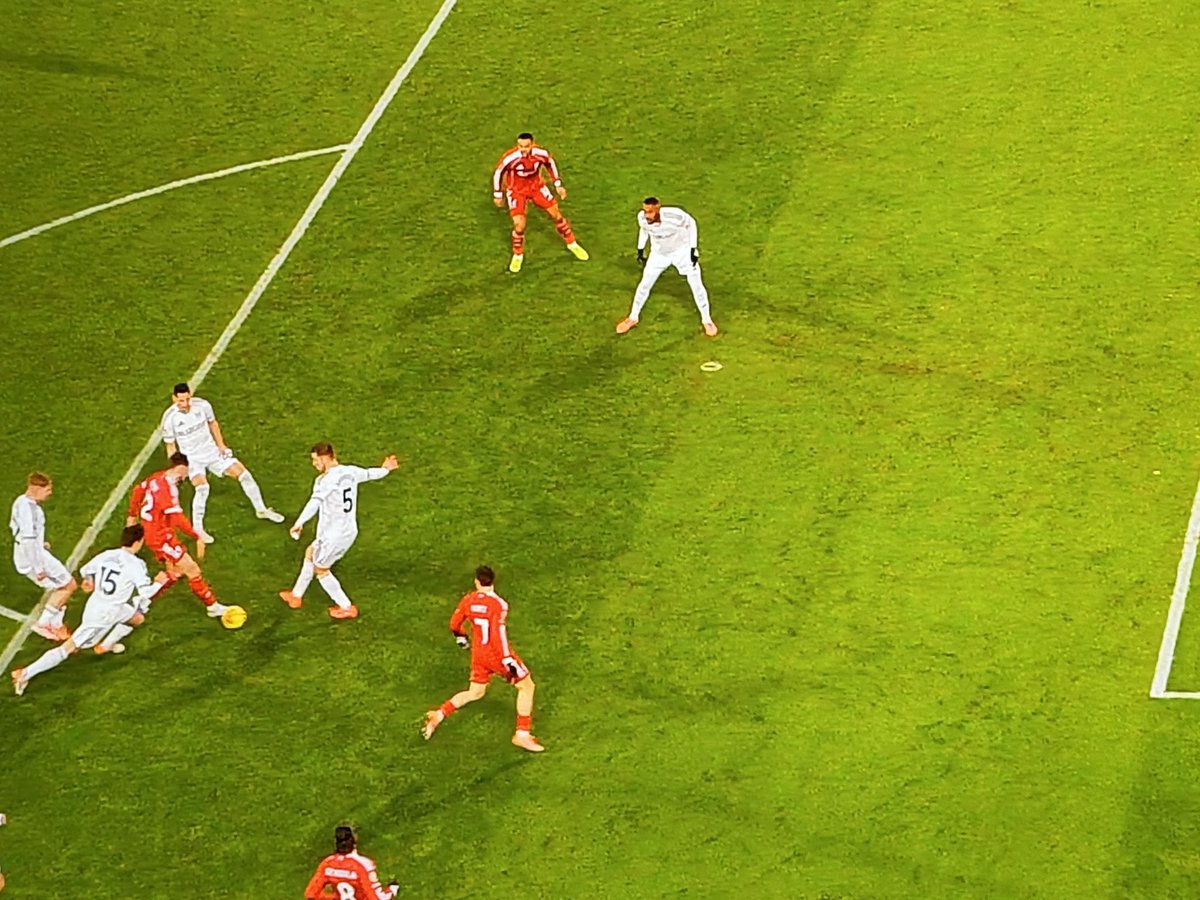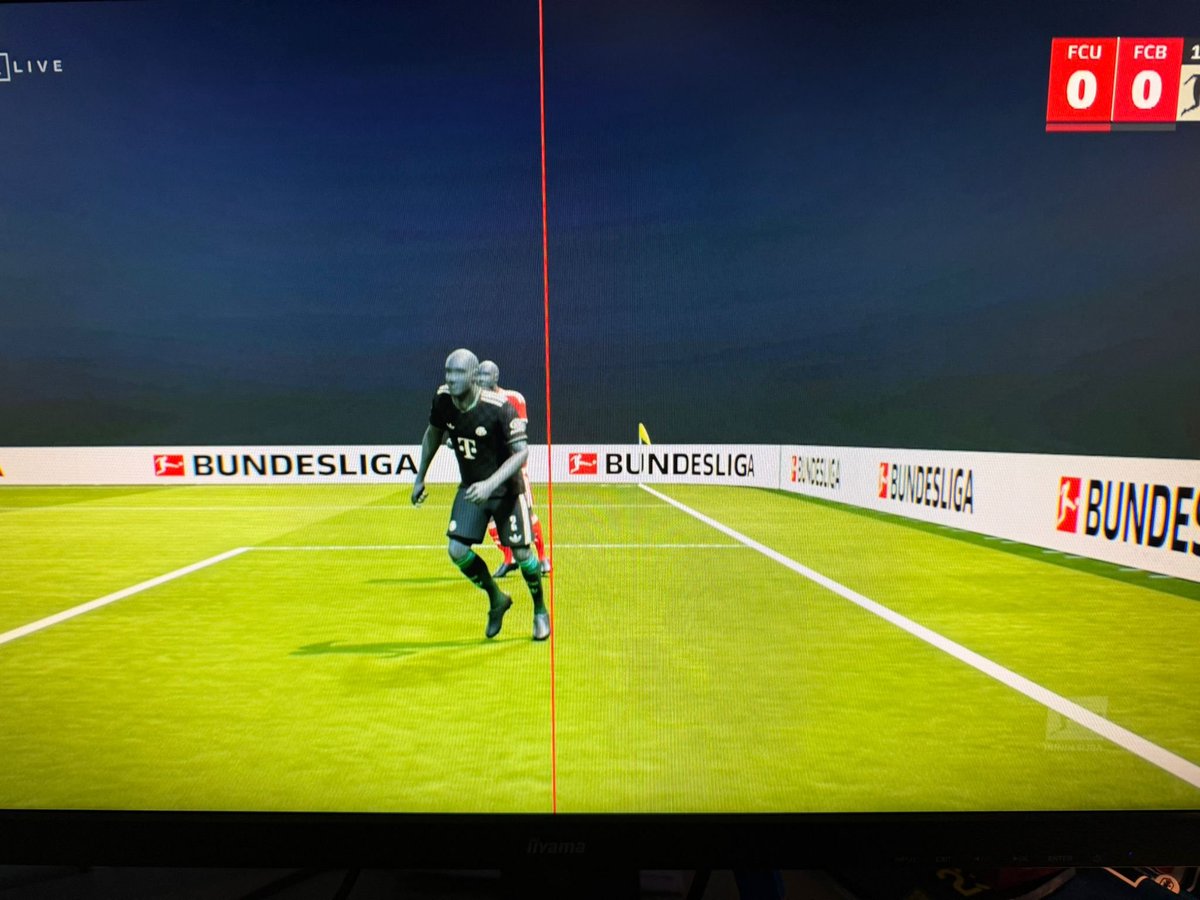It's Monday VAR thread time, which has turned out to be more detailed than I originally planned.
- West Brom vs. Liverpool
- Chelsea vs. Leicester
Wasn't much else to discuss across the weekend, really...
- West Brom vs. Liverpool
- Chelsea vs. Leicester
Wasn't much else to discuss across the weekend, really...
Starting with the free kick Mike Dean gave to Liverpool, which led indirectly to Mo Salah's goal. Only the referee can answer this for you.
The referee is part of the game so it shouldn't be a free kick, and the ball didn't hit him so it shouldn't be a dropped ball. 🤷♂️
The referee is part of the game so it shouldn't be a free kick, and the ball didn't hit him so it shouldn't be a dropped ball. 🤷♂️
Let's dissect the disallowed West Brom goal, which would have given them a 2-1 lead.
Obviously, some see this as controversial. And giving offside against a player who doesn't play the ball is, by its nature, a subjective aspect of the offside law.

Obviously, some see this as controversial. And giving offside against a player who doesn't play the ball is, by its nature, a subjective aspect of the offside law.

This is the image which confirmed the on-field decision, offside.
The key section of the law: "preventing an opponent from playing or being able to play the ball by clearly obstructing the opponent’s line of vision."
Important: Doesn't mean whether you can SEE the ball or not.
The key section of the law: "preventing an opponent from playing or being able to play the ball by clearly obstructing the opponent’s line of vision."
Important: Doesn't mean whether you can SEE the ball or not.

Critical question:
Does Phillips' position in front of Alisson have an impact on how he can play the ball, how quickly he may react?
We're not talking about Phillips blocking Alisson's movement, but how he may be able to challenge for the subsequent ball.
Does Phillips' position in front of Alisson have an impact on how he can play the ball, how quickly he may react?
We're not talking about Phillips blocking Alisson's movement, but how he may be able to challenge for the subsequent ball.

Crucial fact: Whether Alisson will *definitely* save the ball when it drops to Bartley isn't important. It's whether Phillips impacts his ability to do so.
The law does not judge the ability to complete the save, but being able to play the ball.
The law does not judge the ability to complete the save, but being able to play the ball.
To underline, line of vision is not about being able to see the ball (though it can be a factor).
As such, the offside law doesn't discriminate against tall goalkeepers who can see over shorter attackers.
It's how a player in an offside position in the line of vision impacts.
As such, the offside law doesn't discriminate against tall goalkeepers who can see over shorter attackers.
It's how a player in an offside position in the line of vision impacts.
It doesn't matter that the initial header is going wide, or that a different player scored. It's only if the offside player prevented Alisson being able to play that ball.
Otherwise any team would put a player in an offside position on the keeper as a distraction to the play.
Otherwise any team would put a player in an offside position on the keeper as a distraction to the play.
Obviously, as this is a subjective element there will be a few referees who disagree that Alisson was impacted, that's natural, but there is no chance whatsoever the VAR would advise a review on the evidence available.
And of course this isn't the first time we have seen goals disallowed for offside due to a player (who didn't touch the ball) in the goalkeeper's line of vision to the ball.
These are just two examples, but there are plenty of others.


These are just two examples, but there are plenty of others.



On Leicester's goal against Chelsea, and claims for handball against Ayoze Perez.
It can't be accidental handball leading to a goal. Law states this would only applicable if the handball were by the scorer (Youri Tielemans) or the creator (Luke Thomas).
It can't be accidental handball leading to a goal. Law states this would only applicable if the handball were by the scorer (Youri Tielemans) or the creator (Luke Thomas).
To see some comments off at the pass, Liverpool's goal at Tottenham was ruled out for deliberate handball in the attacking phase by Roberto Firmino.
It was not ruled out for accidental attacking handball.
It was not ruled out for accidental attacking handball.
Which leaves deliberate handball, or making your body bigger.
Perez goes to block with his knee, and the ball deflects onto the arm from close range. The deflection is absolutely key and changes the scope of any decision the VAR has to make.


Perez goes to block with his knee, and the ball deflects onto the arm from close range. The deflection is absolutely key and changes the scope of any decision the VAR has to make.



Without the deflection it's different - as with the first half with handball against Thiago Silva.
Perez's arm isn't fully outstretched, and in an expected position for his body movement.
I doubt a VAR would ever judge it as a clear and obvious error for deliberate handball.
Perez's arm isn't fully outstretched, and in an expected position for his body movement.
I doubt a VAR would ever judge it as a clear and obvious error for deliberate handball.
On the disallowed Ben Chilwell goal. There's no point going over loads of old ground so I'll cover a couple of points.
First, Chilwell looks offside to the naked eye when you look at the two players in relation to the line of the penalty area.
First, Chilwell looks offside to the naked eye when you look at the two players in relation to the line of the penalty area.

Secondly, kick point (I've explained this several times).
The VAR has three consecutive frames. Protocol is to select the first frame which show the foot has been in contact with the ball. Therefore, it can look like the ball is moving. This is the same in every league.
The VAR has three consecutive frames. Protocol is to select the first frame which show the foot has been in contact with the ball. Therefore, it can look like the ball is moving. This is the same in every league.

It's obviously one of the issues with the tech as used today.
If you want to read all about how the offside tech works, and its true various flaws, I did a long thread on this in October.
If you want to read all about how the offside tech works, and its true various flaws, I did a long thread on this in October.
https://twitter.com/DaleJohnsonESPN/status/1318143868462911490?s=20
Let's not end without mentioning that a delayed offside flag allowed play to continue in the Newcastle v Man City game, which led to a penalty which was ruled out for offside.
But the offside decision was wrong, and was overturned to bring Newcastle a goal.
But the offside decision was wrong, and was overturned to bring Newcastle a goal.

And as I often say, what you see from the VAR Hub is the choice of the broadcaster.
Sky / BT have access to the feed and images, and it is they who decide what VAR you see.
Sky didn't show the Harry Kane goal VAR offside check process or final image. Here it is.
Sky / BT have access to the feed and images, and it is they who decide what VAR you see.
Sky didn't show the Harry Kane goal VAR offside check process or final image. Here it is.

• • •
Missing some Tweet in this thread? You can try to
force a refresh






